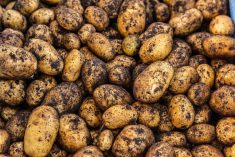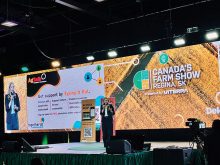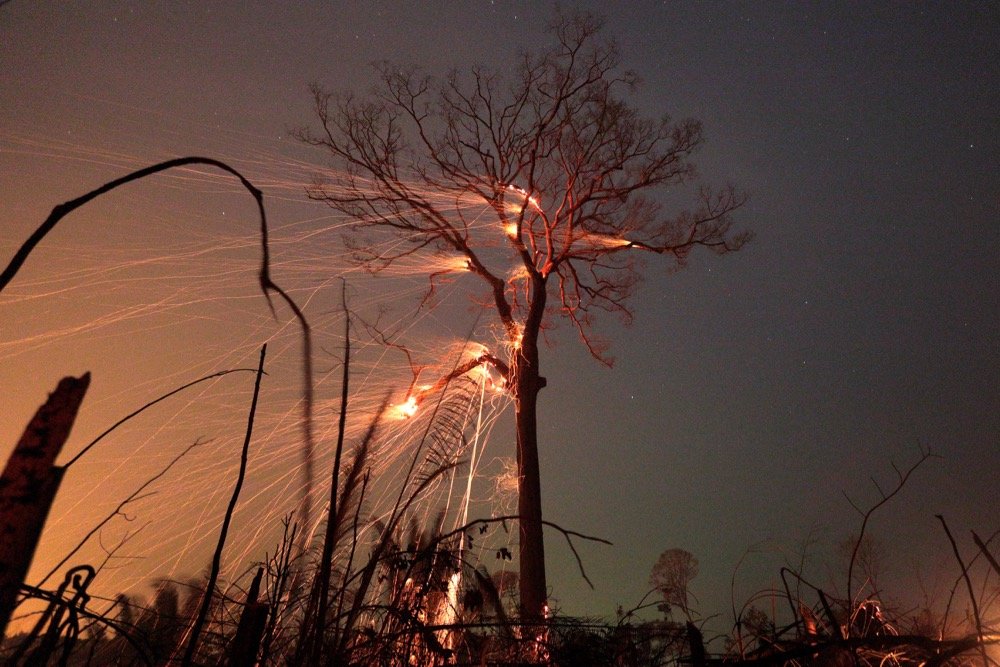Annual reports from other provincial marketing boards are available to the public. But not Peak’s. Its title page reads: “This booklet contains confidential information concerning the operations of Peak of the Market and is provided solely to registered producers of Peak of the Market. It is not to be copied or distributed to other parties.” To emphasize the point, every page of the report is stamped “Confidential.”
On its website, Peak cites its policy to “protect the privacy of ‘personal information’ in Peak’s possession.”
Read Also

Mazergroup’s Bob Mazer dies
Mazergroup’s Bob Mazer, who helped grow his family’s company into a string of farm equipment dealerships and the main dealer for New Holland machinery in Saskatchewan and Manitoba, died July 6 from cancer.
A provincial spokesperson told the Co-operator it could apply for Peak’s annual report under provincial freedom-of-information legislation. But even if the request were granted, certain parts would be blanked out.
The Co-operator obtained a copy through other means.
Russets Are Less Valuable
Peak recently announced an allocation of 12,000 quota units for two additional table potato growers (6,000 units each). But they are for russets, not red potatoes. Russets operate at a price disadvantage to reds in three ways.
Peak’s monthly price reports show reds consistently fetch more than russets on the market. For example, in Nov. 2008, a 100-pound prepack bag of reds was priced at $40, compared to $26.75 for russets.
Peak’s quota retirement and reallocation program summary show the successful quota bid price for russets in the past has been more than 40 per cent lower than for reds.
Russet growers need expensive sizing equipment on their farms to separate baking-size potatoes from the others – a considerable added expense for a new grower.
Not Like The Others
During an Oct. 13, 2009 radio phone-in show, McIntosh suggested Peak operates no differently than vegetable-marketing boards in Ontario, British Columbia, Quebec and Prince Edward Island.
Phone calls to the Ontario Potato Board, the B. C. Vegetable Marketing Commission, the Prince Edward Island Potato Board and La pomme de terre du Quebec confirmed those boards provide growers with some orderly marketing. But they do not control both production through quotas and marketing through price pooling, as Peak does for table potatoes.
Most Revenue From Potatoes
According to Peak’s annual report, the total 2008-09 sales revenue distributed to growers was $49,848,525. Of that, $33,732,745 came from table potatoes, sold both through price pools and the direct market. Other root crops generated $8,422,034 in revenue. Summer crops and seed potatoes made up the rest.
Fewer growers, bigger holdings
According to Peak’s records, the current annual red potato quota in Manitoba is 528,162 quota units (a unit is a 75-pound bag) held by 13 growers.
Growers range in size from 4,780 bags to 116,567 bags. Three farms, Kroeker Farms, Southern Manitoba Potato Co. and Haskett Growers, control more than half of the red potato quota. All three companies are represented on the Peak board. No potato grower on the Peak board markets fewer than 25,000 bags.
Until 2009, growers could also deliver overquota with no penalty. Peak reintroduced a penalty for overquota delivery in 2009, but exempted existing growers, provided their deliveries remained within their previous overquota levels.
In a Jan. 24, 2007 memo, Peak announced the definition of maximum quota had been changed from 60,000 bags to 100,000 75-pound bags of potatoes of all types in a crop year. The largest producer’s delivery quota remains significantly above that amount.
Peak’s grower lists show there were 42 red potato growers in 2002-03, 22 in 2006-07 and 13 in 2009-10. Manitoba today has fewer than a third the number of growers it had seven years ago.


















